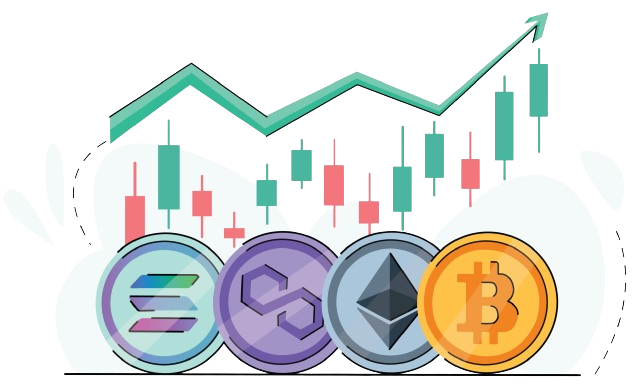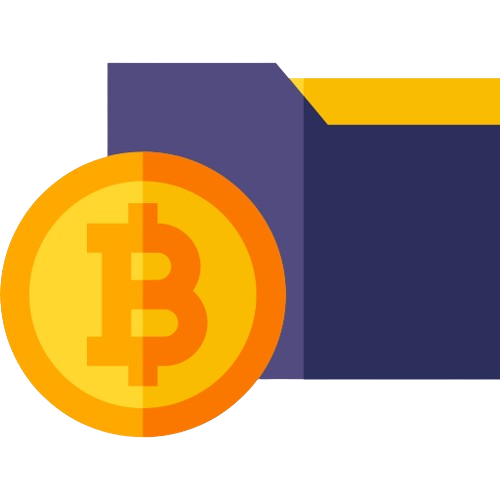
The cryptocurrency revolution has ushered in a new era of digital finance. As adoption grows, a key priority for users is identifying the right platforms for managing and exchanging coins like Bitcoin. The interplay between wallets and exchanges is critical when participating in the ecosystem. This guide will examine the top factors when selecting exchanges for trading crypto sourced from Bitcoin wallets.
Wallet Basics
Cryptocurrency wallets provide the foundation for users to store, receive and send digital assets. Wallets come in many forms with different attributes. Hosted wallets offered by exchanges provide convenience but less control. Self-hosted software, hardware and paper wallets put users fully in charge of their private keys.
The best Bitcoin wallet solutions balance security, usability and accessibility features. They also offer backup and recovery mechanisms to protect against loss or theft. Leading wallets integrate support for swapping between assets but lack advanced trading capabilities. For that, integration with a cryptocurrency exchange is required.
Exchange Evaluation
When assessing the multitude of exchange options, several variables merit consideration:

Security – Exchanges must offer robust security to protect accounts and funds. Leading platforms use cold wallet storage, encryption, multi-signature support and comprehensive monitoring. Protection against phishing and hacking attempts is critical.
Supported Assets – The range of cryptocurrencies supported should align with your investing interests. Most exchanges support heavyweights like Bitcoin and Ethereum but altcoin offerings may vary.
Cost – Fees for trading, deposits and withdrawals vary across platforms. Compare percentage-based and flat fee structures. Occasional promotions can lower costs.
Liquidity – Platforms with higher trading volumes tend to offer better price discovery and faster order execution. Deep liquidity reduces slippage for large trades.
Onramp/Offramp – The ease of moving fiat currency on or off the exchange impacts convenience. Fast connections to external payment networks are ideal.
Mobile App – Responsive, well-designed mobile apps allow users to manage accounts and trade on the go conveniently. App quality varies greatly among exchanges.
Ease of Use – Clean UIs with robust features yet simple workflows suit first-time traders. Advanced charting and order options appeal to active traders.
Regulation – Registered, regulated exchanges provide more transparency and adherence to compliance standards. Unregulated entities have more risk.
Reputation – Seasoned exchanges develop trust and a track record over time. Check reviews and community feedback before using lesser-known platforms.
Top Bitcoin Exchanges
With so many exchanges now servicing the market, distilling down to a select few top options helps narrow the field:
Coinbase – The largest U.S. exchange, Coinbase offers a clean interface, extensive educational resources, institutional-grade security and support for many cryptocurrencies. Great for beginner users getting started.
Kraken – A popular global exchange with excellent liquidity and robust charting tools. Ideal for active traders with lower fees once high volumes are reached.

Gemini – A regulated U.S. exchange with solid cold storage protections, security audits and insurance coverage options. The fee structure is straightforward.
Binance – Leading global exchange with very deep altcoin selection. Advanced trading features and pricing algorithms impress technical traders.
FTX – Rapidly growing exchange with innovative futures and options trading. Responsive development teams and solid risk management practices.
These regulated exchanges offer distinct advantages over crypto-only platforms in security, support, ease of fiat transfers and peace of mind. Do diligence before using exchanges with limited transparency and controls.
Integrating Wallets
Once an exchange account is established, connecting your existing wallet accelerates the trading setup process. Here are tips for integration:
– Use your wallet’s “receive” function to generate a deposit address, then send funds from your wallet to the address. Exchanges will credit funds once the transaction is verified.
– For self-custody wallets, carefully manage the private keys and recovery phrases. Never expose them to the exchange or online. Backup before sending funds.
– Transfer modest amounts initially to test correctness and get comfortable. Only send larger holdings once validation is confirmed.
– Pay attention to deposit times shown by exchanges. Some require significant blockchain confirmations before funds are credited.
– Review withdrawal timeframes and batching policies when moving funds back to your wallet. Test withdrawals with small amounts first.
– Coordinate asset availability between your wallet and exchange capabilities before initiating transfers.
With the right planning, your Bitcoin wallet can interoperate smoothly with a selected exchange. Be cautious and deliberate when moving funds.
Security Best Practices
While connecting your wallet to an exchange can heighten efficiency, additional steps help keep accounts and holdings secure:
– Enable robust two-factor authentication on your exchange account and wallet to inhibit external access.
– Be wary of phishing attempts via email or calls asking for personal account info or to click suspect links.
– Use a unique complex password for exchange access that differs from other accounts. Enable auto log-out features.
– Carefully verify any withdrawal addresses before sending funds from the exchange to other wallets. Triple-check the full address.
– Monitor account activity closely for unauthorized access. Set up alerts for login attempts and withdrawals.
Keeping exchange API keys safe is also critical. Never store keys on internet-connected devices. Use read-only access where possible.
Conclusion
The integration between cryptocurrency wallets and exchanges is a fundamental pillar of digital asset management and trading. By selecting exchanges with superior security, liquidity, Coin support and intuitive interfaces, users can capitalize on market opportunities safely and efficiently. Staying informed about leading exchange options, utilizing integrations cautiously and implementing best security practices allows your Bitcoin wallet to interact seamlessly with trading platforms. As the adoption of blockchain-based financial systems continues rising, the avenues to participate through exchanges linked to personal wallets will expand. The judicious crypto holder appreciates exchanges as partners to their wallet, not competitors. Combining these tools judiciously paves the path toward capitalizing on the potential of decentralized finance.